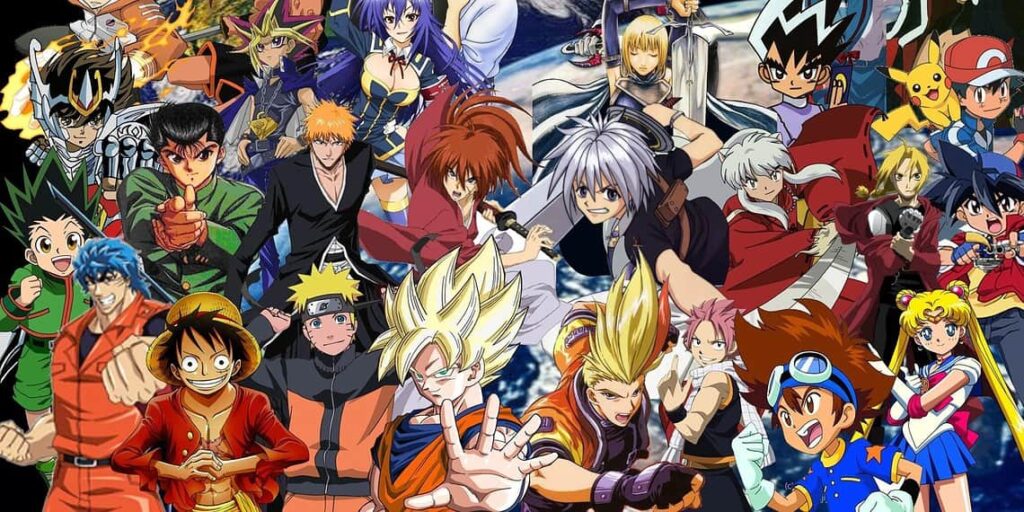Table of Contents
1. Introduction
- Definition of anime characters and their significance in Japanese animation.
- Thesis statement: Anime characters are multifaceted creations that reflect cultural values, storytelling conventions, and universal themes, captivating audiences worldwide.
2. Archetypes and Tropes
- Overview of common character archetypes: the hero, the sidekick, the villain, the mentor, etc.
- Analysis of the significance and appeal of each archetype, as well as their evolution over time.
- Discussion of tropes and stereotypes and their impact on character portrayal in anime.
3. Character Development and Complexity
- Examination of the importance of character development in anime storytelling.
- Exploration of techniques used to develop characters: backstory, personality traits, growth arcs, etc.
- Analysis of complex and morally ambiguous characters and their role in challenging traditional storytelling conventions.
4. Cultural Influence and Representation
- Discussion of cultural influences on the portrayal of anime characters.
- Examination of representation and diversity in anime: portrayal of different races, genders, sexual orientations, etc.
- Critique of stereotypes and tropes and their implications for representation in anime.
5. Iconic Characters and Their Impact
- Case studies of influential anime characters: Goku (Dragon Ball), Naruto Uzumaki (Naruto), and Luffy (One Piece).
- Exploration of how these characters have shaped the anime landscape and influenced subsequent generations of characters.
- Analysis of character traits, motivations, and impact on the narrative and audience.
6. Gender and Identity
- Examination of gender roles and identity in anime characters.
- Discussion of gender-bending and non-binary characters in anime.
- Exploration of themes of self-discovery, acceptance, and identity in character narratives.
7. Character Dynamics and Relationships
- Analysis of interpersonal relationships between characters: friendships, rivalries, romances, etc.
- Exploration of how character dynamics drive plot progression and emotional resonance.
- Case studies of iconic anime relationships and their impact on storytelling.
8. Character Design and Visual Aesthetics
- Examination of the importance of character design in anime.
- Analysis of visual cues and symbolism used to convey character traits and emotions.
- Exploration of iconic character designs and their lasting impact on popular culture.
9. Character Analysis: Case Studies
- Deep dives into specific anime characters and their significance: Spike Spiegel (Cowboy Bebop), Light Yagami (Death Note), and Rei Ayanami (Neon Genesis Evangelion).
- Examination of character development, motivations, and impact on the narrative and audience.
10. Conclusion
- Recap of the depth and diversity of anime characters.
- Reflection on the enduring appeal and cultural significance of anime character archetypes and iconic figures.
- Final thoughts on the ongoing evolution and future potential of anime characters in storytelling and popular culture.
- Anime characters are the lifeblood of the medium, breathing vibrancy and depth into the stories they inhabit. From the iconic heroes and heroines to the enigmatic villains and supporting cast, anime characters come in a dazzling array of personalities, backgrounds, and motivations, each contributing to the rich tapestry of narratives that define the genre.
- At the forefront of many anime series are the protagonists, whose journeys often serve as the driving force behind the plot. These characters range from the determined underdogs striving to overcome adversity to the reluctant heroes thrust into extraordinary circumstances. Whether they’re wielding a sword against dark forces or harnessing supernatural abilities to protect the ones they love, protagonists capture the imagination of viewers with their courage, resilience, and unwavering sense of justice.
- Opposing these protagonists are the antagonists, whose complex motivations and sinister machinations add layers of depth and intrigue to the story. From megalomaniacal overlords seeking world domination to tragic figures consumed by revenge or despair, anime villains come in many forms, challenging the heroes both physically and philosophically. Yet, it is often through their conflicts with these antagonists that protagonists undergo profound growth and transformation, ultimately emerging stronger and more resolved in their convictions.
Popular Chracter
- Beyond the central conflict between heroes and villains lie the myriad supporting characters that populate the world of anime. From loyal allies and wise mentors to quirky sidekicks and comic relief, these characters play crucial roles in shaping the protagonist’s journey and enriching the overall narrative. Whether they’re offering sage advice, providing much-needed comic relief, or confronting their own personal demons, supporting characters add depth and nuance to the story, imbuing it with emotional resonance and authenticity.
- For More Information Please Visit These Websites Viprow And Vecteezy

